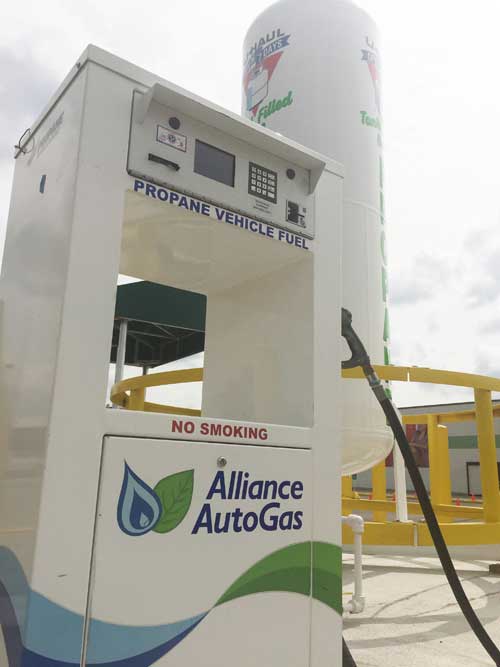Reduce vehicle maintenance with propane autogas
Propane autogas saves more money on maintenance in more efficient ways when compared to diesel, gasoline and electric vehicles, says the Propane Education & Research Council (PERC).
Propane autogas engines require less oil by volume than diesel engines, resulting in less preventative maintenance costs throughout a vehicle’s lifespan, according to PERC.
Meanwhile, gasoline-fueled vehicles run the risk of fuel degradation and increased engine wear, to which autogas offers a solution. Autogas contains fewer residual contaminants in the oil and results in less carbon buildup on valves, PERC says.
Powering a fleet with electricity cuts back on emissions produced by gasoline and diesel, but it is much more costly to maintain the infrastructure than propane. PERC estimates it would cost a business anywhere from $5,000 to $20,000 to maintain a fleet of 10 electric-run buses, whereas 10 propane-powered buses would cost an estimated $2,500.
In addition, autogas cuts back on expensive downtime and offers simpler maintenance options. According to PERC, autogas meets or exceeds emissions standards while requiring a less complex engine than many diesel trucks.
“Propane autogas provides fleets with the lowest total cost of ownership, and a big reason for that is because of its low maintenance and infrastructure costs, including those for garage and maintenance facilities,” says Steve Whaley, director of autogas business development at PERC. “Our newest resource showcases how fleets can transform their maintenance for the better with propane autogas.”
To highlight the ease of propane autogas vehicle maintenance, PERC released a new online resource for fleet owners interested in lowering maintenance costs and downtime.
The free brochure outlines the main benefits of propane autogas vehicle maintenance, including its cost benefits, reduced downtime and simplified winter maintenance. It also highlights the ease of servicing propane autogas vehicles compared to diesel, gasoline and electric.
Fleet owners can also learn about the transition for maintenance crews. There is no additional certification training required for working on propane autogas vehicles, and as long as existing buildings are code compliant for gasoline and diesel, most fleets won’t need to modify their garaging or maintenance facilities, according to the council.
In addition, PERC advises fleets to check with their local authority having jurisdiction for questions about their facilities.
Did you know

Since 2013, Alliance AutoGas has certified 1,300 vehicles. Photo courtesy of Alliance AutoGas
In order to comply with clean air and emissions standards, all alternative fuel system manufacturers are required to obtain EPA Certificates of Conformity before allowing any converted vehicle to operate on public roads.
Since Alliance AutoGas received its first EPA Certificate of Conformity in 2013, it has:
- Been awarded 253 EPA Certificates of Conformity.
- Received 58 Intermediate Age Vehicle Notifications.
- Certified 1,300 vehicles.
“Autogas is a no-compromise fuel solution,” says Ed Hoffman, president of Blossman Services, the distribution partner of Alliance AutoGas. “The technology is proven on a diverse portfolio of vehicle platforms that include all major original equipment manufacturers. We have demonstrated how well autogas can integrate into even the most advanced modern fuel systems. Saying all that, a broad product offering is useless if it can’t be delivered to the customer flawlessly with proper local service support. That is how we will continue to grow.”
















